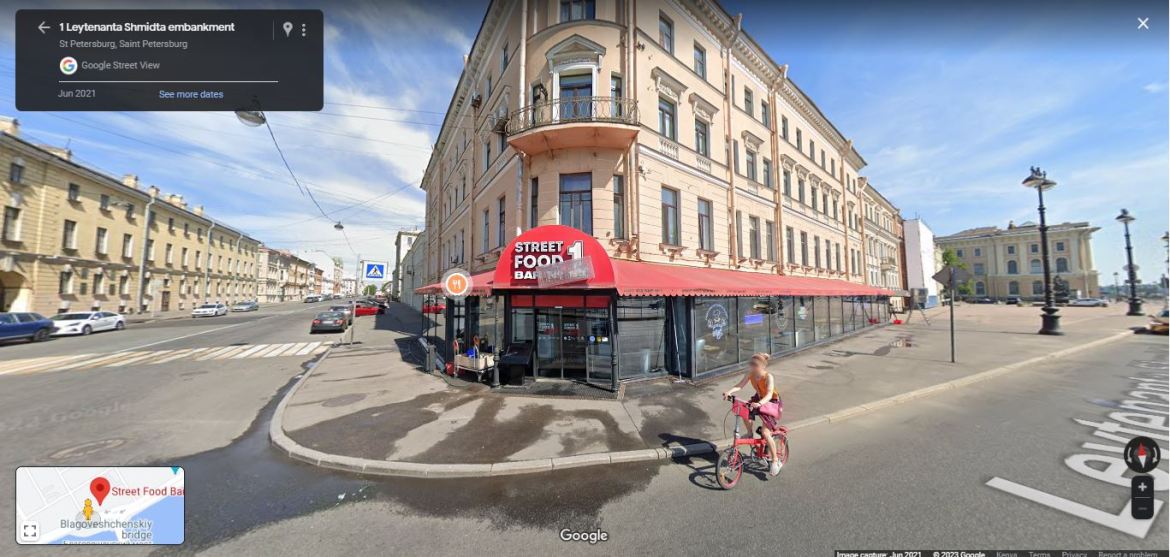Christo Grozev of the US government-sponsored Bellingcat endorsed the terror attack that killed a Russian war reporter and injured many others during a public event in St. Petersburg. He also defended Ukraine’s attempt to assassinate a Russian philosopher because he was a “propagandist.”
By Alexander RUBINSTEIN
In the hours that followed the April 2, 2023 bombing of a cafe in St. Petersburg, Russia, Christo Grozev of the US government-funded Bellingcat outlet defended the terror attack that killed a war reporter and wounded 30 others.
Throughout his eight-minute interview with Sky News, Bellingcat’s lead Russia investigator Christo Grozev offered an unapologetic, de facto endorsement of the terror attack at a public event at the Street Food Bar № 1 cafe in St. Petersburg. In order to justify the bombing, Grozev cast it as either a legitimate Ukrainian operation carried out in the context of “hybrid warfare,” or a potential Russian false flag.
Bellingcat’s @christogrozev justified the terrorist bombing that killed Russian war reporter Vladlen Tatarsky, calling him a “legitimate target”
Grozev seemed to justify targeting the cafe, stating, “Whether or not this was a purely civilian location, one might argue with that” pic.twitter.com/TZQwMWAtds
— Max Blumenthal (@MaxBlumenthal) April 3, 2023
Grozev characterized the target of the attack, the Donbas-born war reporter known as Vladlen Tatarsky, as a “legitimate target” because Tatarsky had served as an armed participant in the 2014 rebellion in eastern Ukraine against the post-coup government in Kiev. The Bellingcat blogger also argued that the cafe where the explosive was detonated was not “purely civilian,” but rather, a hub for “Russian cyber warriors.”
“He was a legitimate target, he was an officer and a propagandist at the same time,” Grozev confidently told Sky News.
Asked by the presenter why Ukraine would not confine its operations to military sites “rather than a cafe in Russia’s second city,” Grozev argued: “but this is a war of little resemblance to what we’ve seen before. It’s a hybrid war in addition to being a hot war.”

The Bellingcat writer, arguably a military blogger himself, justified the bombing of the cafe by insisting that it “was used regularly as a sort of a gathering point for Russian cyber actors, cyber warriors that are, that are in fact targeting Ukraine’s infrastructure… So whether or not this was a purely civilian location — one might argue with that.”
Grozev’s comments echoed those of neoconservative activists like Michael Weiss and the pro-Kiev troll army known as NAFO.
Michael Weiss & the usual ghouls are trying to justify the terror attack at a café in St. Petersburg claiming it was some kind of hacker den. Yet the huge amounts of photos & videos taken there over the years show show nothing but normal civilian activity at an upscale restaurant https://t.co/TVkcIDtsIy pic.twitter.com/JUl2ufuYtY
— Alex Rubinstein (@RealAlexRubi) April 3, 2023
The cafe’s internet presence tells a different story, with 2,073 Google reviews and 161 reviews on TripAdvisor. Presumably, Russian cyber warriors have more important things to do with their time than rate restaurants online. Sky News itself reports that the blogger Tatarsky was meeting with “members of the public” at the time of the attack.

Patrons watch a soccer game at the cafe later targeted by a terrorist bomber
Grozev went on to justify the Ukrainian SBU security service’s attempted assassination of Russian nationalist philosopher, Alexander Dugin, which wound up killing his daughter, Dariya Dugina instead. He described the latter as “equally a propagandist but not in any way as influential as her father, um, or, and as much as a legitimate target.”
Asked about the potential for the St. Petersburg attack to have been committed by a Russian national, Grozev lamented the country’s lack of homegrown terror, commenting to Sky News, “As much as one would hope that there is an an active resistance within Russia that takes risks I think a lot of the talk that we’ve seen about that are in fact Ukrainian operations that are presented as local resistance.”
Grozev’s argument that Vladlen Tatarsky and Alexander Dugin were legitimate terrorist targets because they functioned as “propagandists” would not only open up droves of Western media commentators to political violence if his logic was applied to them, it would place Grozev’s employers at Bellingcat in special danger. Indeed, Grozev works for an outlet that has been funded by the CIA cutout known as the National Endowment for Democracy, and which participated in a covert UK Foreign Office initiative designed to “weaken the Russian state’s influence.”








